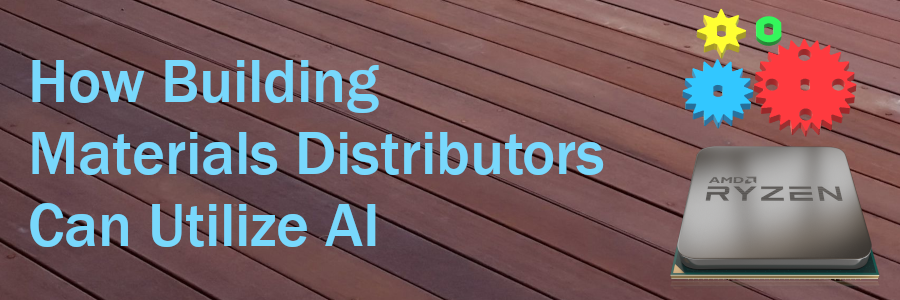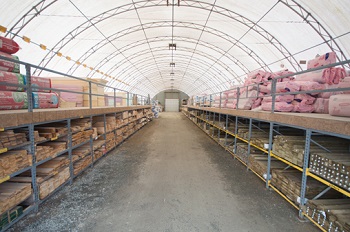How Building Materials Distributors Can Utilize AI
by Black Ink Team

Selling building materials – concrete, lumber, sheet metal, etc. – wholesale is a numbers game. As competition can be fierce, your margins (generally speaking) will be rather thin. In addition to the logic puzzle on the finance side of things, there is a house of cards that needs to be built on the logistics side. Some way, somehow, you need to get large volumes of supply to your customers – who may be spread throughout the entire country – on time, and in the correct amounts. This means onerously keeping track of every single unit of raw materials, as losing a pipe fitting or a length of gutter here or there may not seem like a problem but sooner or later small failures can add up.
Thankfully, there’s a technology that can help. Artificial intelligence (AI) is a software term for algorithms that can find solutions faster and more accurately than humans can. AI can be used to comb through massive amounts of data and to identify patterns. For instance, you could have it look at a list of addresses for your distribution centers and your customers and it would be able to quickly plan out the perfect delivery route to save on gas and time. Given the same dataset, a person could theoretically produce the same result, however it would take much longer. Machines are simply faster at testing many different permutations of data – much faster.

AI could be integrated into every aspect of a building materials distributor’s business – from unloading a truck to applying for a loan. One caveat: an artificial intelligence solution is only as good as the data it uses. In other words, you may have to spend some time manually ‘cleaning’ your raw data so that the AI you feed it to will actually produce useful results. Recursively, AI can be used to speed up this process. For example, it can scan for duplicate names while you are cleaning up your customer database, or it could search for wherever ‘St.’ is being used instread of ‘Street’ which would make addresses easier to locate. Unfortunately, if your database is large some ‘dirty’ data will inevitably get through. But AI-generated results don’t always have to be 100% accurate to be useful – in other words, it’ll make sense to spotcheck (check only a small portion of the data) rather than verify every last detail.
Building materials distributors can even use AI to help them expand their dealer networks. When selling to additional dealers, it can jeopardize an existing relationship to start doing business with another dealer in an existing dealer’s area. Under these circumstances, artificial intelligence reports could be used to show the existing dealer that the new dealer’s market won’t overlap with theirs – or, alternatively, they could be used to show them that having a second independent dealer doing business in the area could help them collectively take customers away from Big Box and e-commerce. Building materials distributors can also use AI to help them identify ‘opportunity zones’ – geographical areas where it would make the most sense to look for new customers. A process for doing this would be to input demographic and geographic data for their existing customers, and then to correlate that information with publicly available sources, such as census results.
